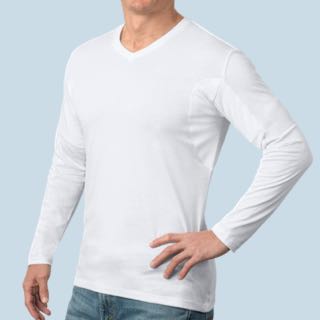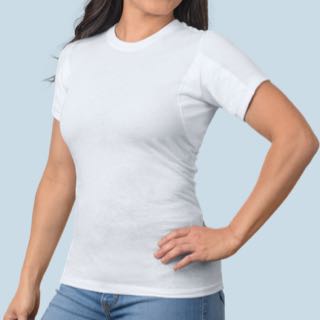The Connection Between Hyperhidrosis and Anxiety
Note: This article is not intended as professional medical advice. If you need help or have further questions about hyperhidrosis and anxiety, consult your doctor.
When it comes to hyperhidrosis and anxiety, it can be difficult to tell where one starts and the other begins. Anxiety doesn't cause hyperhidrosis, but anxiety and hyperhidrosis are closely related because anxiety can exacerbate heavy sweating.
People with hyperhidrosis sweat constantly — whether they're in a chilling climate or on a tropical oasis. But when your nerves pile up, you can sweat even more than your normal sweaty state, creating a never-ending cycle of anxiousness and stress.
According to the International Hyperhidrosis Society, up to 32 percent of people with social anxiety experience excessive sweating.
Here are some common symptoms:
- Reluctant to shake hands or make physical contact
- Socially withdrawn
- Consistently feeling self-conscious
- Worry constantly about stained clothing
- Spending a bulk of your day dealing with sweat, including changing clothes, keeping pads under your arms, washing and wearing bulky, dark clothes.
In this post, we'll further unpack how hyperhidrosis and anxiety affect each other, plus tips and resources to help you manage your sweat when you’re stressed.
How Are Hyperhidrosis and Anxiety Related?
There are a couple reasons why anxiety causes or exacerbates sweating.
1. Anxiousness activates the body's stress response, increasing perspiration.
Many people sweat when they get nervous or stressed. Nerves or anxiety increase nervous system activity, driving adrenaline and triggering your sweat glands. In other words, you start sweating more because you’re nervous.
Stress hormones weren’t designed to give you anxiety before a first date. They’re supposed to alert you to danger, heightening your senses to react quickly (the classic fight or flight response).
However, daily life is slightly different. As your stress-response increases (i.e., your sense of “danger”) your body’s reaction increases as well.
During nervous or anxious moments, your heart beats faster and your breathing quickens. The shift increases your body temperature, triggering sweating to cool down.
It’s also important to note that anxiety and sweating occur in various degrees. Someone who is exceptionally stressed might experience dramatic sensations, while someone who is only slightly anxious might experience a mild blush.
2. Sweating triggers anxious symptoms, increasing perspiration.
On the flip side, you can get anxiety about excessive sweating. Reacting to your sweat increases your body’s stress response, aggravating your stress symptoms.
If you start sweating and then worry about excessive sweating, this can manifest into anxiety-related symptoms, causing you to sweat more.
Managing Hyperhidrosis and Anxiety
Sweating is normal. But living with hyperhidrosis and anxiety complicates things.
If you notice a correlation between sweating and your nervous or anxious thoughts, there are ways to manage it so it doesn’t impose on your life. Here are a few tips:
- Relaxed breathing: Slow, deep breaths help calm the body and nervous system. Relaxed breathing also eases stress. The more comfortable your body is, the less likely it will sweat involuntarily.
- Reduce stress: While relaxed breathing can help you during the moment, reducing your stress will help prevent triggering your body’s stress response.
- Get regular sleep: Sleep is a great tool to keep your body calm, relaxed and unstressed.
- Avoid stimulants: Stimulants like coffee and alcohol can irritate your nervous system.
See our resource on natural ways to stop sweating.
For more information: If you’re struggling to manage your anxiety and sweating and want more resources, see Anxiety and Depression Association of America’s Resources Page.
Managing Your Sweat With Thompson Tee
There’s nothing worse than nervous or anxious sweating. We created Thompson Tee’s sweat proof undershirt to tackle those moments (and life in general). With its integrated sweat proof barriers, your pits stay cool even through the most anxiety-inducing moments.


